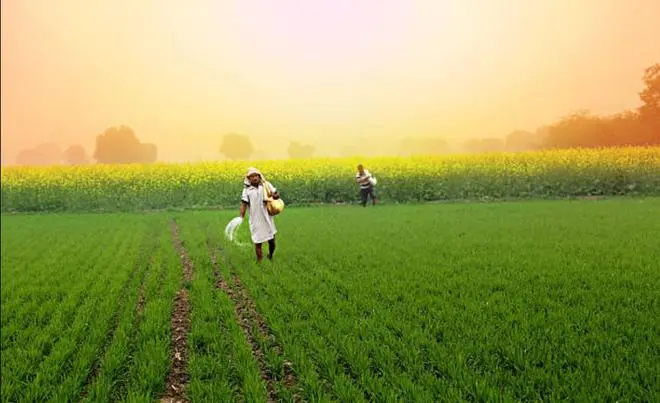If urgent action is not taken to mitigate climate change, food supply and food security will be severely threatened in the future. Higher temperatures, water scarcity, droughts, floods, extreme weather events and greater CO2 concentrations in the atmosphere will drastically affect staple crops around the world. It will also impact fishing and livestock farming.
More than 1,000 global and regional studies predict that a temperature rise of 1 to 2 degrees Celsius will translate into loss in yield of several crop varieties in tropical and temperate regions. An increase of 3 to 4 degrees will have very severe consequences for global food security and supply.

Indian agriculture is vulnerable to climate change because 65% of India’s cropped area is dependent on the monsoons. The Intergovernmental Panel on Climate Change (IPCC) estimates that a 0.5°C rise in winter temperature is likely to reduce wheat yield by 0.45 tonnes per hectare in India.
The impact of climate change on water availability will be severe in large swathes of India. Studies reveal that 54 per cent of India faces high to extremely high, water stress. What’s worse groundwater levels are going down alarmingly in over 50 per cent groundwater wells in the country. This this will directly impact food production. While upping wheat production by 25 per cent and rice by 65 per cent to meet the demand in 2050 may not seem difficult it could prove to be a herculean task unless global warming is contained.
Future projections in global yield of maize and wheat points to an alarming decline. Currently the worldwide demand for wheat is 700 million tonnes annually. According to estimates by the Food and Agricultural Organization (FAO) food production must kick up by at least 60 per cent by 2050 to feed the projected 9.6 billion population.








Comments
Comments have to be in English, and in full sentences. They cannot be abusive or personal. Please abide by our community guidelines for posting your comments.
We have migrated to a new commenting platform. If you are already a registered user of TheHindu Businessline and logged in, you may continue to engage with our articles. If you do not have an account please register and login to post comments. Users can access their older comments by logging into their accounts on Vuukle.